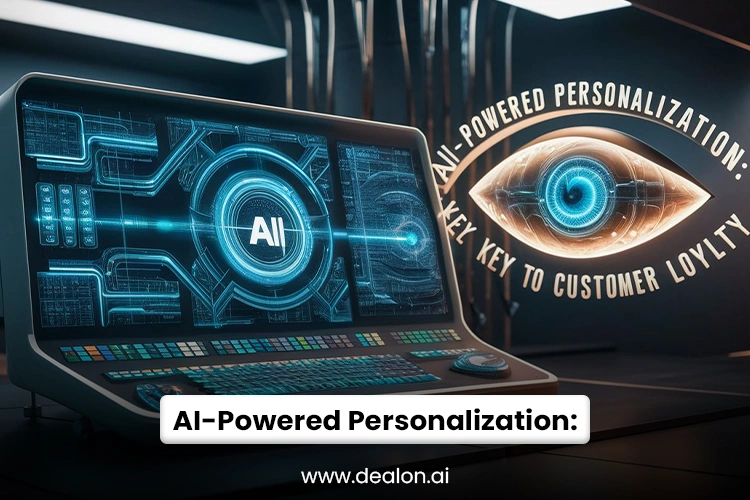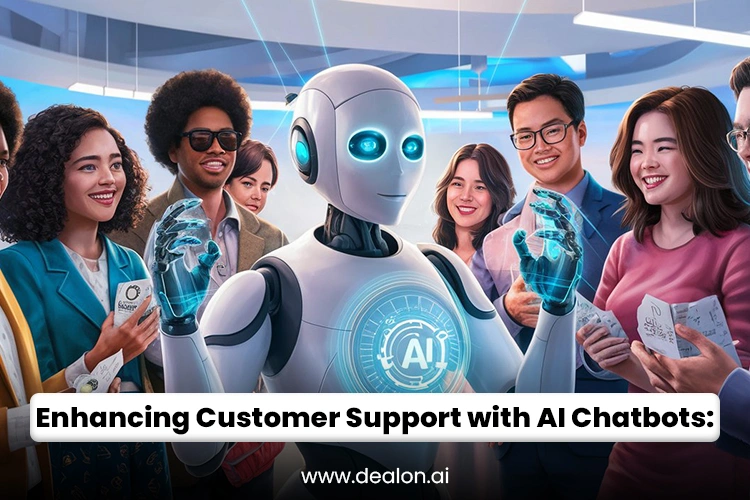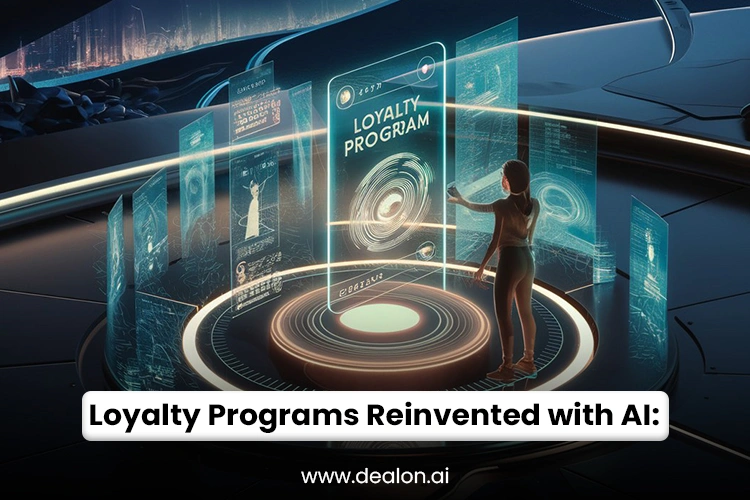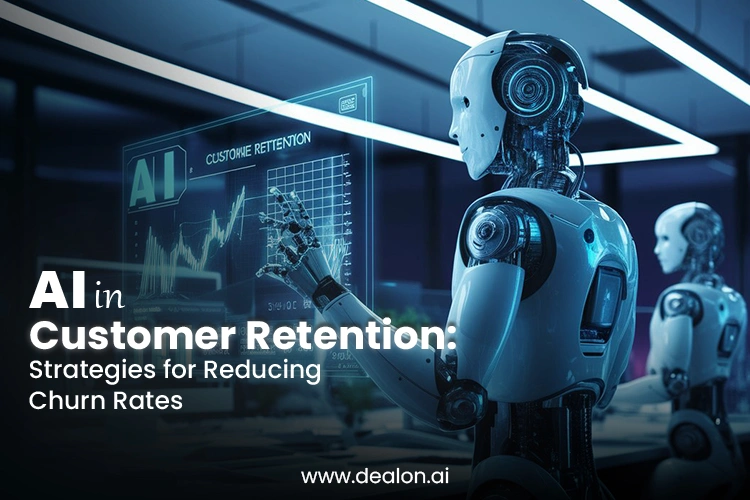In today’s hyper-competitive marketplace, customer retention has become a pivotal determinant of business longevity and profitability. Retaining loyal patrons is not merely a cost-saving measure—it’s a strategic imperative that nurtures brand advocates and sustains recurring revenue. While traditional methods of fostering loyalty have centered on generic promotions and reactive engagement, artificial intelligence (AI) has revolutionized this domain with unprecedented precision and foresight.
AI empowers businesses to decode the intricate nuances of customer behavior, leveraging predictive analytics and machine learning to craft hyper-personalized strategies. From identifying at-risk customers before they churn to curating bespoke recommendations, AI catalyzes meaningful customer interactions. Its capabilities extend to real-time sentiment analysis, enabling brands to address dissatisfaction proactively while cultivating trust.
Furthermore, AI-driven retention strategies transcend conventional boundaries by redefining loyalty programs, optimizing customer support through intelligent chatbots, and enhancing emotional resonance in marketing campaigns. This sophisticated approach ensures that every touchpoint is tailored to amplify satisfaction and foster enduring connections.
As businesses navigate an era of fleeting brand loyalty, embracing AI is no longer optional but a transformative necessity. In this exploration, we delve into how AI-driven innovation is reshaping the customer retention landscape, setting the stage for sustainable success.
In the digital economy, where consumer preferences shift rapidly, customer retention has evolved from a mere operational goal to a strategic imperative. Unlike customer acquisition, which demands substantial marketing investments, retaining existing clients is a cost-efficient pathway to sustainable growth. Studies reveal that retaining customers is up to five times more economical than acquiring new ones, yet its value extends far beyond financial savings. Loyal customers amplify revenue streams through repeat purchases, higher conversion rates, and their ability to influence others as brand advocates.
The increasing emphasis on customer lifetime value (LTV) underscores the importance of fostering enduring relationships. High-LTV customers drive higher revenue and offer key insights into product performance and market trends. In this context, AI emerges as an indispensable tool, revolutionizing retention efforts through its ability to decipher complex behavioral patterns and preferences.
By leveraging AI, businesses can deliver hyper-personalized experiences, anticipate customer needs with predictive analytics, and address dissatisfaction before it escalates into churn. Furthermore, AI enables real-time adaptability, allowing companies to fine-tune engagement strategies as customer expectations evolve. As the digital economy advances, embracing AI-powered retention solutions is no longer optional—it is the keystone of competitive advantage and enduring success.
Also Read: Real-Time Data Integration: How AI Keeps Chatbots Informed for Better Responses In 2025
AI-Powered Personalization: The Key to Customer Loyalty

Personalization has transitioned from a competitive differentiator to a necessity in today’s customer-centric landscape. Customers now demand experiences that cater uniquely to their preferences, behaviors, and expectations. AI-powered personalization has emerged as the cornerstone of cultivating customer loyalty by enabling brands to tailor interactions at an unprecedented scale and depth.
AI systems process and analyze vast datasets, encompassing browsing history, purchase habits, demographic information, and sentiment cues. This data-driven approach allows businesses to craft hyper-individualized experiences that resonate deeply with their customers. For instance, AI-driven recommendation engines on streaming platforms like Netflix or Spotify analyze viewing or listening patterns to suggest tailored content, keeping users engaged and satisfied.
Dynamic content recommendations are one of the most transformative aspects of AI personalization. By leveraging machine learning algorithms, brands can present customers with products, services, or information that align perfectly with their needs and interests. This boosts the likelihood of conversions while enhancing customer satisfaction by saving time and minimizing decision fatigue.
Predictive analytics further elevates personalization by anticipating future customer needs. AI identifies recurring patterns to forecast a customer’s desire next, enabling brands to adopt proactive retention strategies. For instance, e-commerce platforms can send timely notifications about replenishing frequently purchased items or suggest complementary products to enhance a recent purchase.
Moreover, AI personalization fosters a sense of value and belonging among customers. Businesses build lasting loyalty by recognizing and catering to individual preferences, fostering strong emotional connections. AI’s capacity to adapt in real-time guarantees that personalized experiences remain relevant even as customer behaviors evolve.
Incorporating AI-powered personalization into customer retention strategies is no longer optional—it is the definitive pathway to building trust, increasing engagement, and securing lasting loyalty in a highly competitive marketplace.
Churn Prediction: Identifying At-Risk Customers
In the fiercely competitive digital era, customer churn represents a critical challenge for businesses, eroding profitability and threatening long-term sustainability. Identifying at-risk customers before disengaging is paramount, and artificial intelligence (AI) has become a game-changing ally in this endeavor. AI uses advanced data analysis and predictive modeling to help businesses predict customer churn and implement proactive retention strategies.
One of AI’s standout capabilities lies in behavioral analysis. By scrutinizing customer activity, AI algorithms detect subtle shifts in engagement patterns, such as decreased platform usage, reduced transaction frequency, or decreased interaction with marketing campaigns. These changes are early indicators of waning interest, enabling businesses to intervene promptly. For instance, a subscription service may notice reduced logins and respond with personalized re-engagement campaigns or exclusive offers tailored to the customer’s preferences.
Sentiment analysis powered by NLP further enhances churn prediction. AI-driven tools analyze customer feedback from reviews, surveys, and support interactions to gauge emotional sentiment. Negative sentiment or unresolved dissatisfaction often signals potential churn. Businesses can restore trust and reinforce customer loyalty by addressing these issues directly.
AI models also incorporate multi-dimensional data to refine churn prediction accuracy. Transaction history, competitive market dynamics, and customer lifecycle stages are integrated into comprehensive predictive frameworks. This holistic approach identifies at-risk customers precisely, allowing customized interventions that resonate with their unique needs.
Moreover, AI doesn’t merely predict churn—it enables businesses to craft solutions that preemptively address its root causes. From offering tailored discounts to improving service touchpoints, AI-driven insights empower organizations to transform at-risk customers into loyal advocates. In the age of customer-centricity, leveraging AI for churn prediction is not just strategic—it is indispensable for sustained growth and resilience.
Enhancing Customer Support with AI Chatbots

In the modern customer-centric business landscape, seamless and responsive support is a cornerstone of retention. AI-powered chatbots have emerged as transformative tools in this domain, revolutionizing how businesses address customer needs. These intelligent virtual assistants enhance experiences by delivering instant, efficient, personalized solutions, significantly reducing frustration and fostering loyalty.
One of the standout edges of AI chatbots is their availability. Unlike human support agents restricted by working hours, chatbots ensure uninterrupted assistance, catering to customer inquiries around the clock. This real-time responsiveness alleviates the annoyance of prolonged wait times, providing swift resolutions that enhance satisfaction. For instance, a customer facing technical difficulties late at night can receive immediate guidance, reinforcing trust in the brand’s reliability.
AI chatbots also excel at proactive engagement and have an innovative approach to retention. These bots can initiate meaningful interactions by analyzing customer behavior in real time. For example, a chatbot can use tailored incentives such as a discount code or free shipping offer if a customer abandons their shopping cart. Similarly, chatbots can recommend products or services based on browsing history, creating opportunities for upselling while enhancing the customer experience.
Moreover, AI-driven chatbots streamline operational efficiency by handling high volumes of repetitive queries, freeing human agents to focus on complex issues. This hybrid approach not only optimizes resources but also elevates overall service quality. With advancements in NLP, chatbots are increasingly adept at understanding nuanced language, allowing them to handle intricate conversations with empathy and accuracy. The trust and convenience delivered by AI chatbots play a central role in decreasing churn rates.
Loyalty Programs Reinvented with AI

Loyalty programs have long been a staple of customer retention strategies, yet many traditional initiatives fail to engage customers due to their generic, one-size-fits-all approach. With the advent of artificial intelligence (AI), loyalty programs are undergoing a revolutionary transformation, evolving into highly personalized ecosystems that resonate deeply with individual preferences. This reinvention enhances customer satisfaction and fortifies brand loyalty in meaningful and lasting ways.
AI-driven loyalty programs excel at delivering customized rewards tailored to unique customer interests. AI identifies what motivates each individual by analyzing purchase history, browsing patterns, and demographic data. For instance, instead of offering generic discounts, a retail brand might reward a frequent shopper with early access to exclusive collections, aligning with their demonstrated preferences. This level of personalization fosters a deeper emotional connection, encouraging continued engagement with the program.
Another groundbreaking aspect of AI-powered loyalty initiatives is real-time adaptability. Machine learning algorithms dynamically adjust rewards, tiers, and offers based on evolving customer behaviors and market trends. For example, if customers shift their spending from electronics to home goods, the program seamlessly recalibrates to provide relevant incentives. This proactive approach ensures that loyalty programs remain compelling and reflect customer needs.
Furthermore, AI enables gamification elements that enhance program appeal. Interactive challenges, milestones, and instant gratification rewards, all tailored by AI, create an engaging experience that drives participation.
By integrating AI, businesses can transform loyalty programs into dynamic tools that reward transactions and deepen customer relationships. This innovative approach ensures that customers feel valued as individuals, ultimately strengthening retention and positioning brands for long-term success in a competitive marketplace.
Sentiment-Driven Marketing Campaigns
In an era where emotional resonance is paramount to brand success, sentiment-driven marketing campaigns have emerged as a powerful tool for fostering authentic customer connections. By leveraging artificial intelligence (AI) to analyze customer sentiment, businesses can craft campaigns that transcend traditional marketing, delivering messages that are not only relevant but also profoundly empathetic.
AI enables emotionally intelligent messaging by interpreting nuanced cues from customer interactions, including social media comments, product reviews, and customer support interactions. This data-driven approach allows brands to align their communication with the emotional state of their audience. For instance, a travel company can detect excitement in user feedback and respond with uplifting campaigns showcasing new adventure packages while addressing concerns with reassuring messages that demonstrate empathy and understanding.
Sentiment analysis also empowers businesses to refine campaigns continuously. AI-driven insights help identify what resonates most with the audience, enabling real-time adjustments to improve engagement. For example, if a sustainability campaign evokes positive sentiment, brands can amplify this theme across channels, reinforcing their commitment to shared values.
By integrating sentiment analysis into marketing strategies, brands foster deeper emotional bonds with their customers. These personalized, emotionally intelligent campaigns not only enhance customer retention but also establish a sense of trust and loyalty, ensuring sustained relevance in a competitive marketplace.
The Future of AI in Customer Retention
As the digital landscape transforms, the future of AI in customer retention holds boundless potential, poised to revolutionize how businesses engage and sustain their customer base. Emerging innovations such as advanced recommendation engines are becoming increasingly sophisticated, leveraging deep learning algorithms to anticipate and fulfill customer needs with unparalleled accuracy. These systems suggest products or services and predict future preferences, creating a seamless and anticipatory customer journey.
Hyper-personalized experiences are set to become the norm as AI integrates more deeply with Internet of Things (IoT) devices and real-time data streams. This integration allows for dynamic adjustments to customer interactions, ensuring that each touchpoint is uniquely tailored to individual behaviors and contextual factors. For instance, AI can adjust marketing messages based on a customer’s current environment or mood, enhancing relevance and emotional impact.
AI-driven loyalty ecosystems represent another frontier: interconnected platforms utilize blockchain and AI to create transparent, secure, and enriching loyalty programs. These ecosystems facilitate seamless reward redemptions and personalized incentives, fostering deeper emotional bonds and long-term loyalty.
Advancements in NLP and sentiment analysis will enhance AI’s ability to recognize and respond to customer emotions with greater empathy and accuracy. This emotional intelligence will be crucial in building trust and fostering enduring relationships.
Businesses that proactively embrace these AI-driven advancements will mitigate churn and cultivate a devoted customer base, driving sustainable growth and maintaining a competitive edge in an increasingly sophisticated marketplace.
Conclusion
Integrating AI into customer retention strategies is not just a trend; it’s a transformative shift shaping the future of business. The possibilities are vast and deeply impactful, from personalized experiences and churn prediction to sentiment-driven marketing and AI-powered loyalty programs. AI enables enterprises to understand their customers granularly, creating meaningful, data-driven interactions that foster trust and loyalty.
Personalization has become a cornerstone of retention, with AI-driven systems delivering tailored recommendations and predicting customer needs. Businesses can build long-term emotional connections with their audience by ensuring relevance and adding value at every touchpoint. Similarly, AI’s ability to identify at-risk customers through behavioral and sentiment analysis empowers proactive engagement, reducing churn before it occurs.
AI chatbots and loyalty ecosystems further redefine the customer experience by offering immediate support, adapting rewards in real-time, and creating gamified experiences that keep customers engaged. Sentiment analysis elevates marketing strategies, allowing brands to connect with their audience on an emotional level, crafting campaigns that resonate deeply.
As the capabilities of AI continue to evolve, businesses that embrace these innovations will secure a competitive edge. By leveraging AI to enhance customer satisfaction, loyalty, and retention, companies position themselves for sustainable growth and success in an ever-demanding digital economy.

